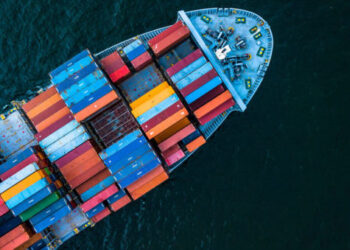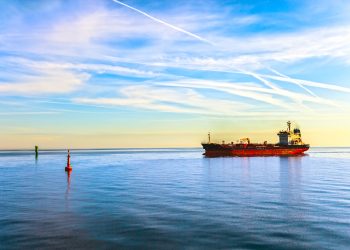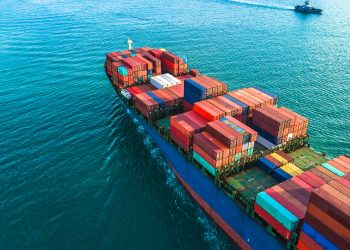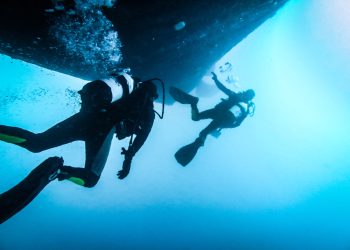False distress alerts activated from VHF DSC, MF/HF DSC, recognized ship earth station (SES) and EPIRBs may impose a considerable and unnecessary burden on Rescue Coordination Centers (RCCs) and on national exchequer by engaging search and rescue (SAR) authorities for carrying out SAR operation, and it could have a potentially serious impact on real distress situations and safety of life at sea. It also has an adverse effect on seafarer’s confidence in the GMDSS.
In that regard, the IMO has issued “Revised Guidelines for the avoidance of False Distress Alerts” through the Resolution MSC-514(105) dated 28 Apil2022.
Guidelines for Administrations
Administrations should:
- inform shipowners and seafarers about the implications of the rising number of false distress alerts;
- take steps to enable ships properly to register all GMDSS equipment, and ensure that this registration data is readily available to rescue coordination centres (RCCs);
- consider establishing and using national enforcement measures to prosecute those who:
.1 inadvertently transmit a false distress alert without proper cancellation, or who fail to respond to a distress alert due to misuse or negligence;
.2 repeatedly transmit false distress alerts; and
.3 deliberately transmit false distress alerts; - use the International Telecommunication Union violation reporting process for false distress alerts, or for failure to respond to a distress alert relayed from shore to ship;
- ensure that all relevant ship personnel know how GMDSS equipment operates, the importance of avoiding false distress alerts, the steps to be taken to prevent the transmission of such false distress alerts, and the procedures to be followed when a false distress alert has been transmitted;
- inform type approval authorities of false distress alert problems, in order to draw their attention to the testing and alerting functions of radio equipment during the type approval process;
- urge companies installing radio equipment to ensure that relevant ship personnel are made familiar with the operation of the installed equipment;
- investigate the cause when a specific model of GMDSS equipment repeatedly transmits unwanted distress alerts, and inform the appropriate organizations accordingly;
- ensure that surveyors and inspectors are informed about GMDSS equipment, and particularly about how to operate and test it without transmitting a false distress alert; and
- require that GMDSS radio operators be appropriately certificated.
Guidelines for manufacturers, suppliers and installers
Manufacturers, suppliers and installers should:
- design equipment for distress alerting so that:
.1 it will not be possible to transmit a distress alert unintentionally;
.2 the panel for emergency operation is separated from the one for
normal operation and is partially fitted with a cover, and the switches
on the panel are clearly classified by colouring; and
.3 there are standardized arrangements of operation panels and operational procedures; - design test features so that the testing of GMDSS equipment will not result in the transmission of false distress alerts;
- ensure that any distress alert activation is indicated visually or acoustically, or both, and shows that the equipment is transmitting a distress alert until manually deactivated;
- ensure also that the EPIRB position on board, installations (including the release and activation mechanisms) and handling procedures preclude unwanted activation (designing the EPIRB so that when it is out of its bracket it must also be immersed in water to activate automatically, and so that, when operated manually, a two-step activation action is required);
- provide clear and precise operational instructions that are easy to understand (maintenance and operational instructions should be separated, and should be written both in English and in any other language deemed necessary);
- ensure that, when any GMDSS equipment has been installed, the necessary instructions are given to ship personnel, drawing specific attention to operational procedures (a record should be kept that such instructions have been given); and
- ensure also that supply and installation personnel understand how the GMDSS works and the consequences of transmitting a false distress alert.
Guidelines for trainers and educators
Trainers and educators should:
- ensure that maritime education centres are informed about false distress alert problems and their implications for SAR, the GMDSS, etc., and procedures to be followed if a false distress alert is transmitted, and include them in their teaching programmes;
- obtain and use actual case histories as examples;
- emphasize the need to avoid false distress alerts; and
ensure that no inadvertent transmission of a false distress alert occurs when training on GMDSS equipment
Guidelines for companies, masters and seafarers
Companies, masters and seafarers should, as appropriate, ensure that:
- all GMDSS-certificated personnel responsible for sending a distress alert have been instructed about, and are competent to operate, the particular radio equipment on the ship
- the person or persons responsible for communications during distress incidents give the necessary instructions and information to all crew members on how to use GMDSS equipment to send a distress alert;
- as part of each “abandon ship” drill, instruction is given on how emergency equipment should be used to provide GMDSS functions;
- GMDSS equipment testing is only undertaken under the supervision of the person responsible for communications during distress incidents;
- GMDSS equipment testing or drills are never allowed to cause false distress alerts;
- encoded identities of EPIRBs, which are used by SAR personnel responding to emergencies, are properly registered in a database accessible 24 hours a day or automatically provided to SAR authorities (masters should confirm that their EPIRBs have been registered with such a database, to help SAR services identify the ship in the event of distress and rapidly obtain other information which will enable them to respond appropriately);
- EPIRB, DSC and ship earth station registration data is immediately updated if there is any change in information relating to the ship such as owner, name or flag, and that the necessary action is taken to re-programme the ship’s new data in the GMDSS equipment concerned;
- for new ships, positions for installing EPIRBs are considered at the earliest stage of ship design and construction;
- EPIRBs are carefully installed in accordance with manufacturers’ instructions and using qualified personnel (sometimes EPIRBs are damaged or broken due to improper handling or installation. They must be installed in a location that will enable them to float free and automatically activate if the ship sinks.
- Care must be taken to ensure that they are not tampered with or accidentally activated. If the coding has to be changed or the batteries serviced, manufacturers’ requirements must be strictly followed. There have been cases where EPIRB lanyards were attached to the ship so that the EPIRB could not float free; lanyards are only to be used by survivors for securing the EPIRB to a survival craft or person in water);
- EPIRBs are not activated if assistance is already immediately available (EPIRBs are intended to call for assistance if the ship is unable to obtain help by other means, and to provide position information and homing signals for SAR units);
- if a distress alert has been accidentally transmitted, the ship makes every reasonable attempt to communicate with the RCC by any means to cancel the false distress alert using the procedures given in ITU World Radiocommunication Conference Resolution 349, as contained in the latest edition of the ITU-R Maritime Manual on Operational procedures for cancelling false distress alerts in the Global Maritime Distress and Safety System






























































